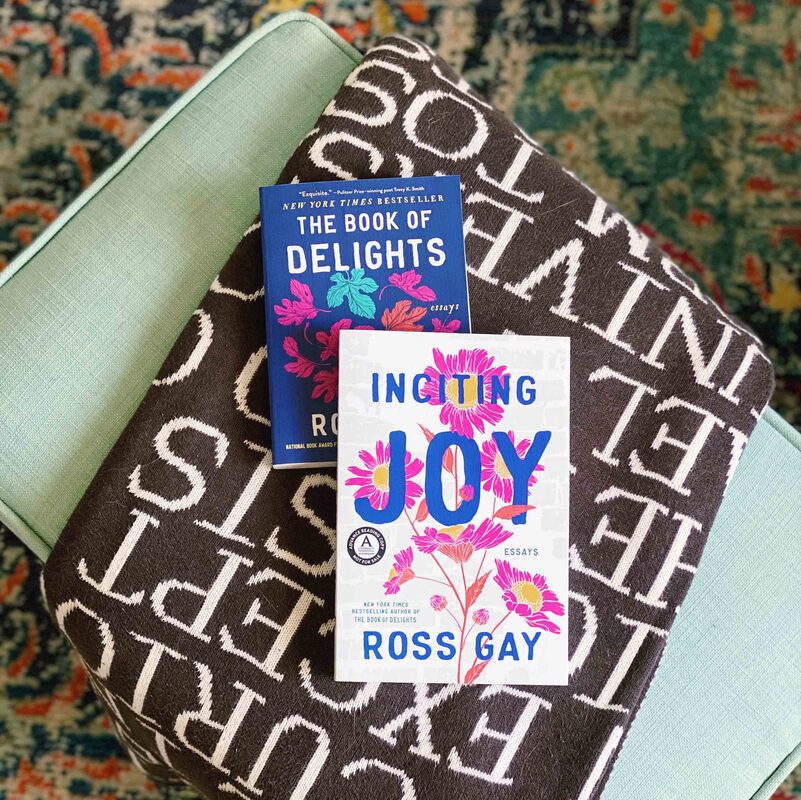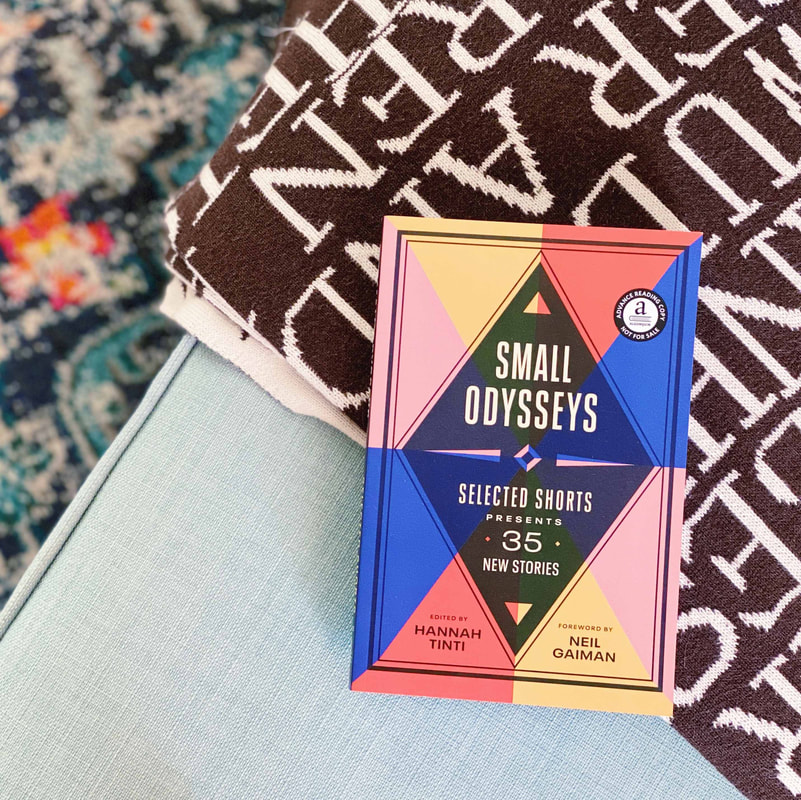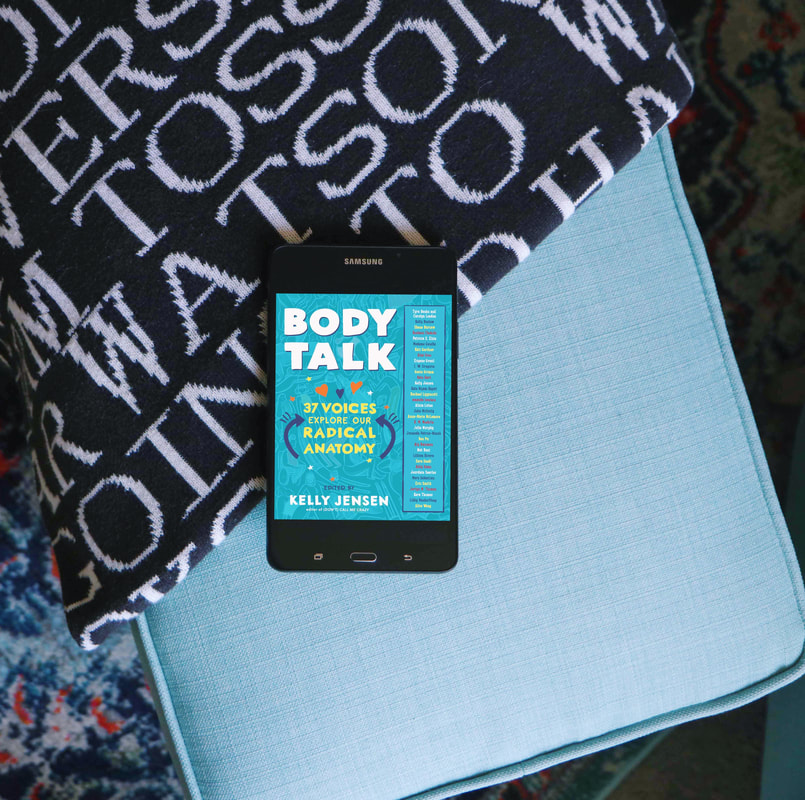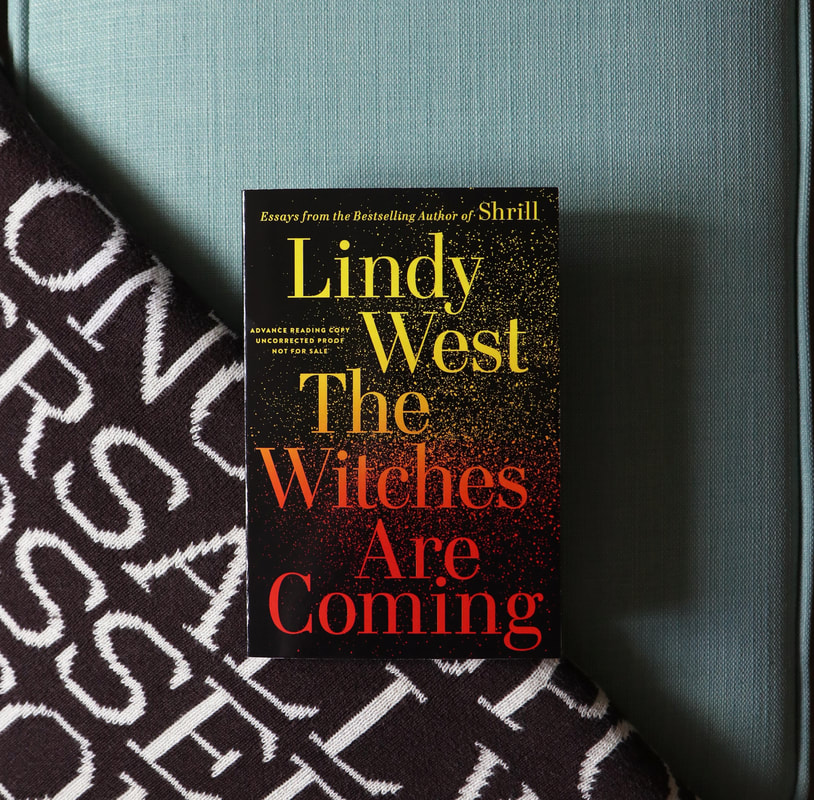|
4.5 stars
The power of community, the healing abilities of positive growth and shared love. Inciting Joy is a collection of "feel good" that I think is the perfect balm for those struggling in these times. Sense of joy: ★★★★★ Flow of stories: ★★★★ Writing style: ★★★★ There are some books that are both shockingly simple to describe and yet so vastly large they feel impossible to shrink down into the purposes of a review. Inciting Joy is one of those reads. Ross Gay's essays in this collection all have a central theme—joy, of course—but each feels layered, framed through a different quirk of the lens, and reliant on different modes to convey their message. Joy, like all emotions, is a complex and ever-changing thing. Growth and green things are a prominent note in this collection. Ideas of life and growing are no strangers to joy. More surprising to some might be the inclusion of grief and exploration of loss as a means to receive the sharper, more poignant pieces of joy and uplifting emotional resonance. Beautiful, sharp, soft, and layered, Inciting Joy is a unique thumbprint on a world that often focuses on the sharp and critical. Sit down with Ross Gay for a while and feel some love. It'll help... I promise. Thank you to Algonquin Books for my copy in exchange for an honest review.
0 Comments
4.5 stars
Short stories are little windows into infinite worlds, don't you think? At times heartfelt, at times reminiscent, at times difficult, this selection of contemporary shorts seemed to almost have it all. The world in small doses, each tale a different tone. Enjoyment: ★★★★ Diversity in topics: ★★★★★ Resonance: ★★★★★ So let's start off with a bit of truth from me to you--I am not a contemporary reader. I am a speculative, horrific, fantastical type of reader. I actively try to escape the bounds of this world with new ones (better ones?) and find little time left for stories of the everyday. So why did I read this? There's no dragons, no horrors. There are only people and their stories. And they are so very grounded in reality. Small Odysseys exists because of a different form of storytelling within the same vein—the Selected Shorts program in New York. Pre-pandemic, that program existed to bring to life short stories with the talented voices of trained actors and a live audience through the power of broadcasting. As Neil Gaiman himself states in the foreword, this was truly a delight for anyone interested in stories as it existed in the cross-section of literature, theater, and radio in a way that resonated with lots of people. So because of that gem in our culture, we now have this short story collection curated Hannah Tinti, the brains behind the original concept. Small Odysseys was truly a delight. As they're short stories, it's hard to describe them without giving too much of their contents away so I won't do any summarizing here. Some of my favorites included Un-Selfie by Aimee Bender and Bedtime Story by Victor LaValle. Just dive in, like I did, and enjoy the ride. Thank you to the publisher for my copy in exchange for an honest review. 5 stars
A compelling must-read for kids, young adults, and adults! Body Talk is the kind of no-holds-barred, thoughtful compilation that I wish I had access to in school. It's time to demystify our bodies and break down the barriers of ignorance and taboo surrounding our bodies and our physical differences. Concept: ★★★★★ Writing: ★★★★ Teachings/Knowledge: ★★★★★ Enjoyment: ★★★★ Why do we give our bodies such a hard time? Why do signs of physical difference or ability mark some of us as "Other?" At the end of the day, why are we so hard on each other and on ourselves? These are just a few of the questions that Body Talk raises, and they're great starting points. I'd go so far as to the say that this anthology could be considered a primer for students in health class, because honestly there are things in here that kids (and us adults!) should be thinking critically about. What is the correct way to refer to a disabled person? Where did the phrase "body positivity" come from, and is it the inclusive term we think it is? Why is a woman's pain treated as insignificant in a doctor's office and often misdiagnosed? Did you know that young men should be aware of a specific kind of cancer? Some of these tales come from a place of education—the author is telling us about a subject in an an almost impartial manner, and it works. Some of these stories are bullet points, some are from medical professionals. Other tales come from places of pain and joy—authors who live on the other side of the social norm due to their physical form—which is outside of their control—and they're sharing their experiences with themselves on a personal level and with their surroundings. These are the stories that I will remember the most, because some of them cut deep and others highlighted some of my own biases, fears, and judgments. We all have conceptions of physicality and what it means to have a "normal" body. What many of us don't think about is how it feels to live on the other side of that line, and how our "normal" ideas can be damaging, ignorant, or at times just confused. This book is covers a LOT of topics, and everyone could read these stories and get something different out of them. We've got stories on disabilities, yes, but also on body size and shape, gender, female issues and male issues, stigmas in different communities, and windows into other people's experiences. A valuable book, and worth a read to all of us with bodies to care for and love. (So... all of us, unless the person reading this is an embodied spirit or cyborg, in which case you've got your own issues.) Thank you to Algonquin Books for Young Readers for my copy in exchange for an honest review. 3.75 stars
"Yes, we are witches, and we're hunting you." What an impressive and readable collection of essays. Lindy West, the author of Shrill, has returned and she's ready to share some facts and clapbacks. "In a laugh-out-loud, incisive cultural critique, West extolls the world-changing magic of truth, urging readers to reckon with dark lies in the heart of the American mythos, and unpacking the complicated, and sometimes tragic, politics of not being a white man in the twenty-first century. She tracks the misogyny and propaganda hidden (or not so hidden) in the media she and her peers devoured growing up, a buffet of distortions, delusions, prejudice, and outright bullsh*t that has allowed white male mediocrity to maintain a death grip on American culture and politics-and that delivered us to this precarious, disorienting moment in history." I have to be honest, these essays were at times hard to read--not necessarily due to the author, but due to the wounds that they reopened for me. Being a woman in today's world isn't easy, and we're still fighting to be heard. Being a woman in America...yeah, it's rough, especially given the current political leader. These essays have receipts. They have anecdotes. And they'll throw you into each and every one of the political turmoils of the now. The title The Witches Are Coming is derived from West's analysis of Trump's frequent use of the phrase "witch hunt." While Trump is determined to use it as a label that is pro-men, West is quick to remind us that witches were always women who spoke out and had agency, and the phrase "witch hunt" has historical roots in female oppression...not the other way around. So for West, yes, the "witches" are coming. And it's time for a reckoning and reclaiming of the term. Also, a side note: the chapter on Adam Sandler is inspiring. I, too, hate Adam Sandler for what he represents. West gets it. You tell 'em, girl. Thank you to Hachette for this ARC in exchange for an honest review. |
Amy Imogene ReadsJust someone looking for her own door into Wonderland. Categories
All
Archives
May 2023
|





 RSS Feed
RSS Feed
